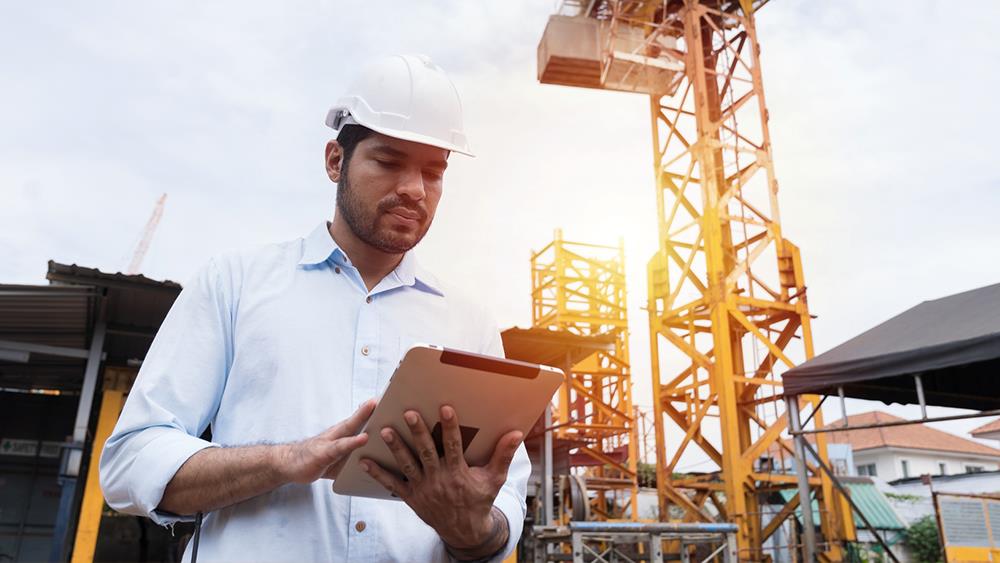

More than three-quarters (78%) of frontline construction workers in the UK trust AI and automation to keep them safe at work, amid wider concerns about potential job losses, according to new research.
The findings, from a survey of 1,003 "frontline workers"* carried out online by Obsurvant between 28 March and 4 April 2025, were released for World Day for Safety and Health at Work on 28 April 2025. This year, the United Nations’ International Labour Organisation is putting the spotlight on AI and digitalisation in the workplace.
When it comes to tech on the frontline, construction workers are optimistic. Many believe AI will improve workplace safety by predicting and preventing accidents (38%), spotting risks humans might miss (35%), and taking on dangerous tasks in their place (30%).
Rather than feeling scared or anxious about AI and automation, construction workers are most likely to say they feel “curious” and “hopeful” about these new technologies in the workplace.
The positive findings will reassure construction companies and contractors looking to accelerate their AI and automation plans in future years, according to workplace operations and improvement platform SafetyCulture, which commissioned the wide-ranging study.
Alex Brooks-Sykes, SafetyCulture’s lead for UK & Ireland, said: “There’s a lot for the construction industry to feel positive about here. Leaders may assume the worst about workers’ attitudes to AI and automation being introduced in the workplace – but our findings show staff are optimistic about the safety benefits in particular.
“It’s also reassuring to see three times as many workers trust management to make the right decisions on AI adoption, than don’t. When introducing new technology, particularly when there’s uncertainty about its impact, being open and transparent is key, and communication is an area workers say their employer can improve on.”
The survey found 54% of workers trust management to make the right choices on AI compared to 16% who don’t.
While potential job losses and redundancies are frontline construction workers’ top concern (45%), they also have concerns about machines making decisions without human oversight (38%). Crucially, the majority of workers (58%) trust AI to provide insights or instructions but not to make decisions. Nearly a third are also worried about unreliable or ‘glitchy’ technology actually creating hazards (30%).
Brooks-Sykes added: “Among the general positivity, there are some useful actionable issues that workers raise. Management must be open with workers about their AI and automation plans, and it’s worth considering how technology will reshape the workplace and impact on morale.”
* For the purposes of the survey, "frontline workers" are defined as individuals aged 18+ in the UK who must physically show up to their role. Respondents were all in full-time employment. The sectors which respondents worked in were: construction, hospitality, logistics, manufacturing, and retail.